Project partners
Inter-disciplinar partners to promote active cities and fight against sedentarity across Europe
The project is led by Sport and Citizenship (France) and is further composed of 10 additional partners that are :
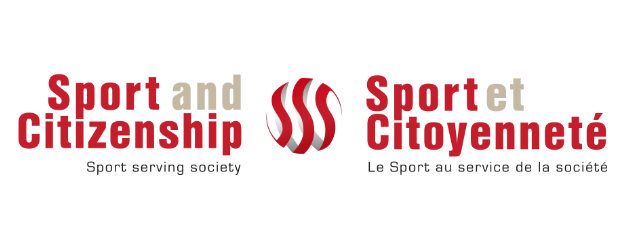
SPORT AND CITIZENSHIP THINK TANK :
Sport and Citizenship is the leading European think tank in the field of sport. Created in 2007 after the publication of the White Paper on Sport, it aims to support the development of the European dimension of sport. Sport and Citizenship is dedicated to the study of European public policies in the field of sport, and the promotion of sport’s societal impact. Ultimately, Sport and Citizenship promotes sport and physical activity as elements of a European identity.
Sport and Citizenship manages to maintain discussions on various topics and bring in new ideas. Its activities include the publication of a quarterly scientific journal and Regular conferences on various topics related to the European dimension of sport organized in collaboration with the European institutions and relevant sport actors in Europe.
Sport and Citizenship has also led the Erasmus+ Sport-funded PASS (Physical Activity Serving Society) project. It was a 3-year initiative that uncovered policy and practice in physical activity policies at EU and national level. It was aimed at identifying gaps in physical activity policies and propose operational recommendations to combat inactivity at policy level. This project has been concluded in December 2017.
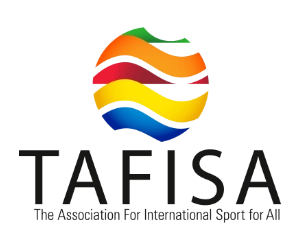
THE ASSOCIATION FOR INTERNATIONAL SPORT FOR ALL :
Founded in 1991 in Bordeaux, France, TAFISA is the leading international Sport for All organisation. TAFISA’s ultimate vision is a sustainable active world, and it actively pursues that vision by:
- Advocating and lobbying internationally for sustainable Sport for All and physical activity.
- Providing networking and experience sharing opportunities.
- Supporting the development of the Sport for All and physical activity movement by providing appropriate programmes, events and consulting services.
TAFISA has over 300 members from 170 countries on all continents. Members comprise both governmental and non-governmental organisations, including national sports federations, national Olympic committees, ministries of health, culture, sport, etc., international, national, regional and local Sport for All organisations, educational institutions and individuals.
Most importantly, the development of Active Cities constitutes a number one priority that is transversal to the above TAFISA portfolio of programmes and events. TAFISA can rightly be considered as a pioneer organisation, playing a decisive and recognised role in this field.
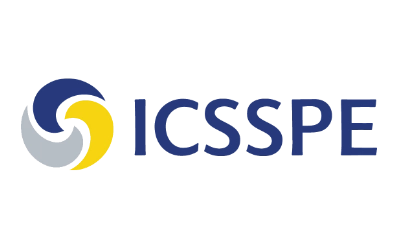
THE INTERNATIONAL COUNCIL FOR SPORT SCIENCE AND PHYSICAL EDUCATION :
The International Council of Sport Science and Physical Education is the world’s largest network of national and international organisations that are concerned with sport, sport science and physical education. Since 1958 ICSSPE has reached out to millions of people across the globe through research activities, knowledge sharing and capacity building, as well as policy advice and development.
ICSSPE investigates for a better scientific understanding of human movement, educates for a better quality of life and improved health, and it advocates for the benefits related to an active lifestyle as well as to preserving ethical values inherent in sporting activity.
Therefore:
- ICSSPE promotes research in sport, physical education and physical activity.
- ICSSPE facilitates exchange between different scientific branches and institutions through sharing research findings and rationales. Publications such as the Directory of Sport Science and Perspectives help spreading knowledge and expertise across the globe.
- ICSSPE act s as a voice for sport, physical education and for sport science towards society.
At the intersection of science, pedagogy, politics and business, ICSSPE offers multi-sectorial and multi-disciplinary solutions to current challenges in sport. The unique co-operation between government organisations, civil society associations and academic institutions allows for comprehensive advice to sport, education and health authorities, as well as for advancing interdisciplinary science, in order to use the potential of sport for social, economic and cultural development. In this way, ICSSPE serves to protect the integrity of sport and promote its diversity and is committed to the participation of all population groups.

EUROPEAN FEDERATION FOR COMPANY SPORT :
The European Federation for Company Sport (EFCS) is a voluntary non-profit organization gathering national company sport federations from 39 different countries (and 41 federation) of which 22 EU member states. These national federations are referent associations in their own countries to organize activities related to company sport. Most of these federations’ members are companies which differ in their size, form, and activity.
The EFCS’s main objective is to promote and develop sport practice in the professional environment all across Europe.
The EFCS’s core missions are mainly about:
- Strengthening human and cultural contacts across national borders through sport;
- Promoting regular physical activity within companies;
- Emphasizing the recreational and health enhancing character of grassroots sport.
The EFCS’s targets are multiple. Sport activities concern as heart targets both active and retired employees as well as publics that are most often forgotten by sport offering: youth, women and disabled people. They are from companies affiliated to the EFCSthrough their national federations for company sport.
The EFCS is also related to researchers and universities to gather and collect data about company and sport action field.

Evaleo
EVALEO is a non-profit association based in Switzerland and founded in 2011. Their goal is to inspire and enable people to adopt an active, healthy and fulfilling lifestyle. To achieve this, they carry out a mission of education, development and active promotion of Well-being and Sustainable Health. EVALEO is a worldwide alliance and a network of experts, professionals, and partners active in the field, federated around a common vision of Well-being and Sustainable Health and through the implementation of programmes and interventions aimed at generating positive long-term impacts.
EVALEO’s approach considers how an individual can act to develop an active, healthy, and fulfilling lifestyle, and how the community can act to create supportive environments for it. Aware of the complexity of the issues and challenges facing our societies, it aims to co-create spaces (places and moments that become an oasis) that allow everyone to live well-being and sustainable health on a daily basis.
Furthermore, EVALEO’s involvement on the topic of Active city should be underlined as they developed and launched, in partnership with TAFISA among other actors, the Global Active City certification. They were also involved in a project that aimed to create a Workplace Active Certification (WAC).
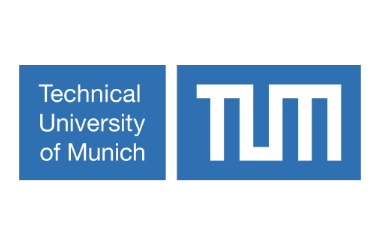
Munich Technical University
The Technical University of Munich (TUM) is among the top Universities in Germany, regarding teaching as well as research. It has an international orientation, with 34% of the students being native to countries other than Germany, and it is rated high in international rankings. The TUM includes 15 departments covering various fields of science, among which the Department of Sport and Health Sciences focuses on a large spectrum of topics under the guideline motive of “movement”. In this department, challenges of modern society are investigated, and solutions are developed with a specific emphasis on the prevention of modern civilization illnesses such as overweight and cardiovascular diseases. Additionally, researchers provide athletes and associations in competitive sports with advisory offers, diagnostic performance tests and research results. In close cooperation, students are trained to become the next generation of skilled teachers and researchers to promote health and exercise in society.
The department includes almost 3000 students, 17 study programs, and 13 professors. The Associate Professorship of Didactics in Sport and Health is led by Prof. Dr. Filip Mess, who coordinates a team of 28 researchers and research assistants. The goal is to provide people with better skills to adopt a more active, healthy, and sustainable lifestyle. Project topics include approaches to improve the quality of health care in various institutions, interventions related to physical activity and sustainability in schools and child day-care, and innovative concepts to promote exercise and a healthy lifestyle in professional and recreational settings.
Besides, the Associate Professorship of Didactics in Sport and Health is involved in several projects related to the promotion of PA in various contexts, such as “Active City Innovation”, a project that focuses on how cities can become active environments for health and exercise.

EUROPEAN CYCLISTS FEDERATION :
The ECF pledges to ensure that bicycle use achieves its fullest potential, so as to bring about sustainable mobility, health and public well-being. To achieve this goal, the ECFseeks to change attitudes, policies and budget allocations at the European level and to support its members to do so at national, regional and city levels. One of its main tools is to stimulate and organise the exchange of information and expertise on bicycle-related transport policies and strategies as well as the work of the cyclists’ movement, cities (ECF Cities for Cyclists network) and other stakeholders.
- Raise the status of cycling and to promote recognition of the benefits of cycling for both individuals and society as a whole.
- Encourage consideration of cyclists’ needs in Europe in all aspects of transport planning and management, environment, safety and health, and promote cycle-friendly conditions throughout Europe.
- Support member groups on matters of national and international importance relating to the aims of the ECF.
- Undertake research on matters relating to cycling, transportation, environment and safety.
- Enhance the information and advice available to member groups and thus assist in their activities nationally and internationally.
- Promote the exchange of information and expertise between member organisations.
- Provide information and expertise in order to raise the awareness of specific groups: international bodies and institutions, politicians, planners, manufacturers/trade groups, bicycle holiday agents/tourism authorities, environmental and transport groups with regard to cycling and its benefits and needs.
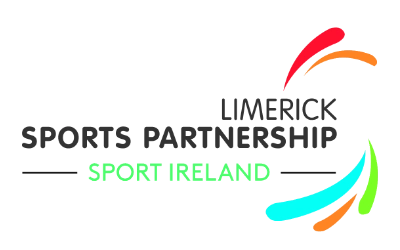
City of Limerick
The city of Limerick develops a vision of a city where everybody lives and works in an environment that promotes physical activity and facilitates an active way of life. The main mission is to encourage and enable Limerick people to partake in physical activity on a regular basis regardless of age or ability “Getting Limerick Active Together”.
Key role of the city:
- To support the people of Limerick in a professional, proactive, and accessible manner. • To oversee and coordinate the implementation of Limerick Local Sports Partnership strategy.
- To foster partnership among key providers and stakeholders.
- To build the capacity of the providers.
- To involve and include providers and stakeholders in monitoring progress and inform the future direction of the Sport Partnership.
The three main goal of Limerick:
- To provide children and young people to a positive introduction to physical activity which promotes and supports lifelong involvement.
- To build capacity in communities to facilitate sustained increases in physical activity levels thereby enhancing wellbeing and improve quality of life.
- To support equality of opportunity and facilitate people of all ages and abilities to access physical activity throughout their lifecycle.
- To develop a combined potential of physical activity providers and key stakeholders to get Limerick Active Together
Furthermore, Limerick secured funding in 2020 to develop the Active Cities concept in line with the GAPPA model (Global Action Plan for Physical Activity).
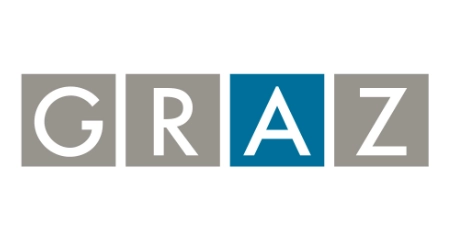
City of Graz
Graz is the capital city of the Austrian state of Styria and second-largest city in Austria. It had a population of 294 236. In 1999, the city’s historic centre was added to the UNESCO list of World Heritage Sites. The city of Graz makes a point of making its population more active every day. The studies for Austria show that only around a fifth of 11 to 15- year-old schoolchildren get enough exercise, i.e., the physical activity that corresponds to the recommendations for health-enhancing exercise. Only about a quarter of adults are sufficiently physically active from a health point of view. Incidentally, there is a very recent survey by the sports associations for Graz that highlights the following situation: Half of the people of Graz do no winter sports, not ice skating, cross-country skiing nor skiing. Physical activity and sport in general also have an important economic impact on the city. Physical activity saves the state up to EUR 530 million (0.2% of GDP) every year – and this includes accident costs incurred through sport. If the number of people who moved sufficiently could be increased by just 10%, savings of up to a further 117 million euros would be possible – if the entire population exercised regularly, even up to 1.15 billion euros.
The Sport department of the city of Graz has the following tasks:
- Promotion of sports activities in Graz and support for sports events
- Sports courses in spring, summer, autumn and winter for children and young people during the non-teaching period
- Swimming courses for beginners and advanced in spring and autumn
- Annual honouring of the national champions of the previous year in the various sports
- Deployment of youth teams from Graz to the international school games
Through the PACTE+ project, the city of Graz aims to reach its ambition to become the sportiest city in Austria.
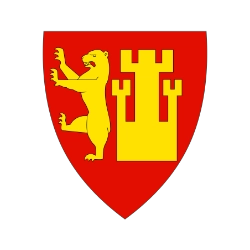
City of Fredrikstad
An agency for active lives is part of the section for culture, environment, and urban development in Fredrikstad municipality. It is a municipal professional body working on issues regarding sport and physical activity. The agency is the wheel hub for all operative public health issues and shall facilitate long-term commitment in-house and collaborate with civil society as for reaching our long-term goals for a sustainable development and becoming a more active city. Besides, the agency is responsible for renting out municipal sports facilities to the public as well as for facility planning with sports, outdoor activities and general physical activity, and urban city development.
Therefore, this department of the city services is managing several public grants for sports and physical activity in Fredrikstad municipality. In collaboration with civil society, sports clubs and sports organizations and outdoor organizations, the agency for active lives seeks to offer the widest possible range of activities to the established sports environment, outdoor activities, self-organized sports and activity, as well as to the local population in general. All initiatives implemented by the agency are based on the UN`s sustainability goals, and our vision is to get “more people, more active, more often”.
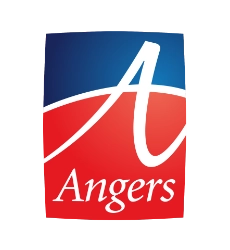
City of Angers
Ideally located at the gates of the “Grand Ouest” (Great West), at only one and a quarter hour from the Atlantic coast, famous for the mild climate, Angers is ranked 1st for the city of France where it is good to live. The city is also the greenest in France with 51m² of green spaces per inhabitant. With a young population (48% is under 30 years old, 25% is student) and ambitious urban projects, Angers surprises with its balance. The moderate cost of living and the ease of movement regardless of the means of transport are cited by newcomers as criteria of their choice. Acclaimed by Parisians who have left the capital, Angers and its region meet the conditions to harmoniously combine family and professional life.
In February 2018, the City of Angers was rewarded at the national level with 4 laurels during the award ceremony of the “Active and Sports City” labels. Angers was thus the first city in France to achieve this level of recognition for its sports policy towards is inhabitants, associations, and its local partners. Aware of the social responsibility of sport, the City of Angers ensures that its development remains socially equitable, economically efficient, and ecologically responsible. In this perspective, it wishes to make the practice of sport a vector of educational continuity and a factor of influence of Angers and its territory. It has thus committed itself to a very proactive sports policy, called “Angers Sport 2020″. The culmination of the consultations conducted with all the actors of the Angevin sports world during the Estates General of Sport in 2014 and 2015, this policy nourishes the ambition to embrace all forms of sports practices in its transversal, unifying and popular dimensions.
Our pacte project partners
The original PACTE project has come to an end, but it would have been impossible to continue our activities without the work of our previous partners.
Disclaimer: Funded by the European Union. Views and opinions expressed are however those of the author(s) only and do not necessarily reflect those of the European Union or Education, Audiovisual and Culture Executive Agency (EACEA). Neither the European Union nor the granting authority can be held responsible for them.




